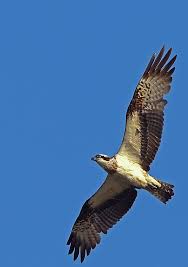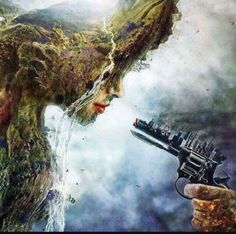The most exquisitely graceful phenomenon I’ve ever seen in nature is the flight of a hovering kite falling gently to earth from 100 meters above the fields. Unlike its distant cousin, the peregrine falcon, kites don’t dive bomb from extraordinary heights to punch their prey out of the sky, but scan the ground for mice or rabbits, and attack with silent stealth.
Kites hover for 20 seconds or more, and then fly a short distance and hover in place again, flapping their wings in a quick but seemingly effortless motion as they scan the ground for prey. After moving across the field in this manner for a short distance, they tuck their wings back in a ‘V’ shape and parachute to the ground when they spot prey.

At the creek that used to run along the edge of town, I would often stand in silence and awe after a meditation and watch kites perform their sublime search pattern over the fields.
The kites are gone now, their habitat destroyed by a sprawling multi-purpose “development” on the fields that were their hunting ground just two years ago.
The entire project is the ugliest architectural plan you can imagine. Everything, from the first structure—a new courthouse that looks like three architects threw their competing and contradictory ideas together—to apartments and warehouses, has been done in a cheap, retro-industrial style.
I mourn for the kites, coyotes, long-eared rabbits, pheasant, quail and even the rattlesnakes that I encountered here a decade ago.
Man, dominated by symbolic thought rather than the master of it, is destroying the Earth. There’s been a reduction of three billion birds in the last 30 or 40 years in North America alone. Humankind urgently needs a revolution in consciousness.
The entire movement of thought spontaneously stops through passive awareness gathering undirected attention. When thought ends, time ends, for there is no time without thought, only unfolding and flowering.
The ending of thought in undirected attention
renews one’s spirit and enlarges one’s heart. Living in terms of a continuous chain of thought, self and time suffocates the spirit. However by learning how to die to thought every day we learn how to truly live.
Clearly, the evolution of ‘higher thought’ is both a necessary precondition for experiencing the awareness of the universe, and a tremendous impediment to it. This is the dilemma of man, and it is probably shared by all potentially intelligent species, wherever they evolve in the universe.
Humans are bringing about only the Sixth Mass Extinction in the history of life on earth. Think on it: In three and a half billion years of life, a sentient species that evolved within the web of life on Earth is extinguishing animals and plants at a rate last seen when a meteor struck the planet and wiped out the dinosaurs!
The crisis of consciousness is therefore not just a human conundrum, but a cosmic one. It goes beyond the misnomer of the “Anthropocene Age,” beyond the rather ridiculous question of whether life exists anywhere else amongst the billions of galaxies, to the deepest existential and philosophical questions of potentially intelligent life.
How can one species, which evolved along the same lines as all other species, have so much destructive power? Is symbolic thought a mistake of evolution, or is it a stage through which some sentient species pass, and others do not?
I propose that wherever species possessing symbolic thought attaining high science and sophisticated technology evolve, they are either transformed in the crucible of thought’s increasing fragmentation, or they fail to make the transition and go out with a bang or a whimper. Though many have lost faith in humanity, we still have the chance, individually and collectively, to grow in self-understanding and live in harmony with our planet, and by extension, the cosmos.

On our present and ancient course however, we remain incorrigibly divisive, fragmenting the Earth all to hell and driving half of our fellow creatures to extinction. Yet smart dummies sell the idea that humanity’s hope lies in finding “Earth 2.o.”
We have to presume that humankind is standing at an ultimate crossroads. The window of opportunity to change course, in our age at least, is closing. Yet there is an astounding lack of urgency. We are humankind, and cannot separate ourselves from the human crisis as so many are doing.
I feel the universe, and the intelligence that permeates it, wants us to make the transition from cunning apes to true Homo sapiens—wise human beings. But only the living generations, by growing into undivided human beings, can change the course of man.
Martin LeFevre
No comments:
Post a Comment